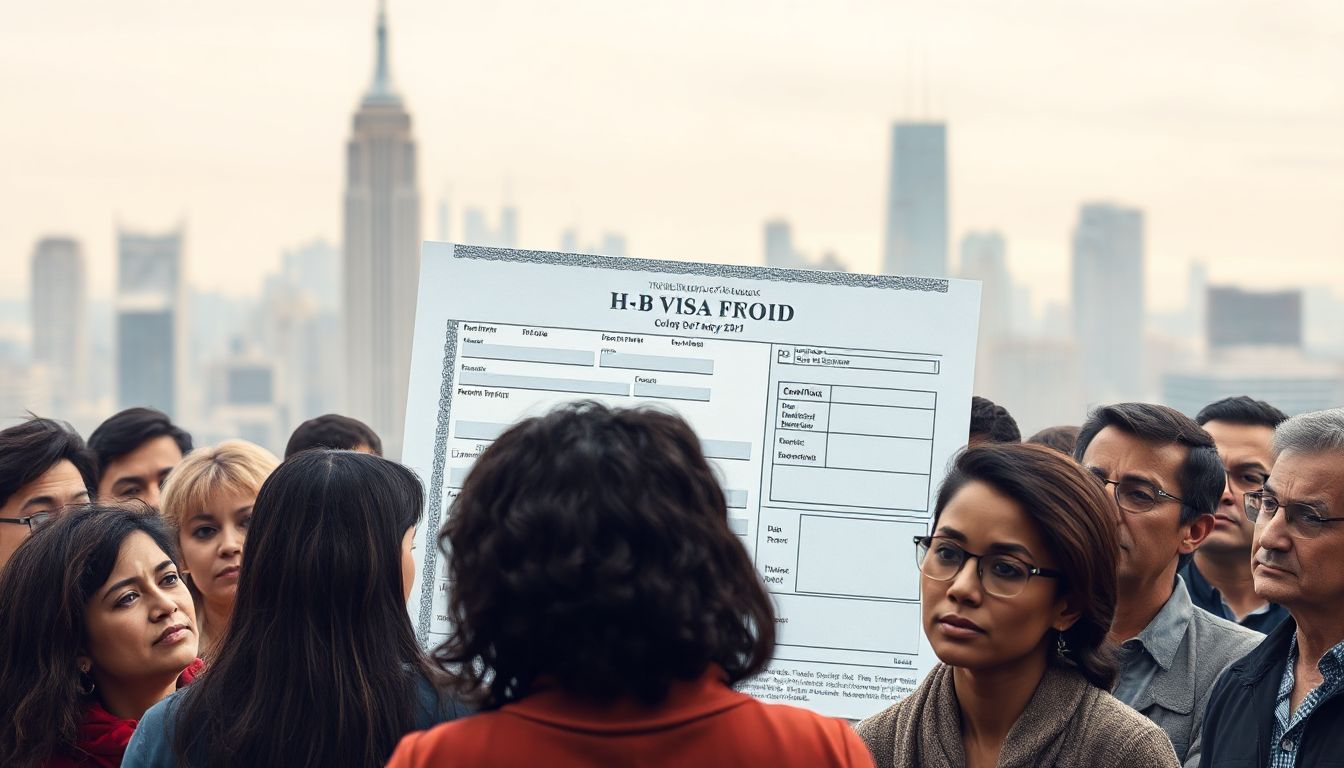H-1B Visa: Understanding the Debate Shaping America’s Tech and Talent Landscape
The H-1B visa stands as a cornerstone for bringing skilled foreign workers to the U.S., especially in vital STEM fields. This program helps fill jobs that need special skills. Yet, it also sparks one of America’s most heated debates. This visa deeply impacts our country’s innovation and its workforce.
Arguments for and against the H-1B are sharp and clear. Supporters point to economic benefits, saying these workers close talent gaps. Critics, though, worry about American wages dropping and local jobs being lost. It’s a complex issue with many sides.
This article gives you a balanced look at the H-1B visa. We will explore its background, how it works, what it means for our economy, and all the main arguments. You’ll get a full picture of this important topic.
What is the H-1B Visa?
The Basics of the H-1B Program
The H-1B visa has one main job: letting U.S. companies hire foreign workers temporarily. These workers must have special skills for jobs that need deep technical or theoretical knowledge. A “specialty occupation” means a job usually needing a bachelor’s degree or higher in a specific field. Both the employer and the worker must meet set rules to qualify.
Each year, the government puts a limit on how many H-1B visas it hands out. This is called the annual cap. When too many people apply, a randomized lottery system picks who gets a visa. This lottery makes getting an H-1B visa very competitive.
An H-1B visa usually lasts three years. You can often extend it for up to six years in total. Some workers can even extend their visa beyond six years if they are waiting for a green card. This allows them to stay and work while their permanent residency application is processed.
Arguments For the H-1B Visa
Filling Skill Gaps and Driving Innovation
The H-1B visa is crucial for companies needing workers with specific, hard-to-find skills. For example, tech, software, and engineering firms often struggle to find enough U.S. talent. These visas help them quickly staff up with experts. This ensures important projects can move forward.
These workers do more than just fill jobs; they boost the U.S. economy. H-1B visa holders contribute to innovation and also spend money, helping local businesses. Restricting this program could make America less competitive on the global stage. Many studies show foreign-born workers are key to economic growth.
Think about new companies and startups; H-1B workers often play a big role. They bring fresh ideas and vital skills, helping these new ventures get off the ground. Their diverse backgrounds can spark new ways of thinking and problem-solving.
Benefits for U.S. Employers
Companies in the U.S. get a huge edge by tapping into a global talent pool. They can hire the very best people from anywhere, no matter where they were born. This helps American businesses stay ahead in tough markets. It makes our companies stronger.
The H-1B program also offers businesses lots of flexibility. Companies can quickly bring in skilled workers when a new project starts or when technology changes fast. This helps them adapt and grow without delays. It keeps them nimble.
Often, highly skilled H-1B workers earn good salaries. This is because their unique skills are in high demand. Bringing in such talent can also raise overall productivity for companies. Everyone benefits from having top performers on the team.
Arguments Against the H-1B Visa
Impact on American Workers
A big worry is that companies might use H-1B workers to pay less. Critics say this can push down wages for American citizens and permanent residents. When foreign workers are paid lower, it can slow down wage growth for everyone in those fields. This makes it harder for domestic talent to earn a fair wage.
Some people also argue that H-1B visas take jobs away from qualified American workers. This concern often pops up for entry-level or mid-level roles. Critics claim companies sometimes choose foreign labor over local hires, even when skilled Americans are available. This can cause frustration among job seekers.
Certain companies rely heavily on H-1B visas, sometimes called “H-1B dependent” firms. These companies often face extra scrutiny. There are worries about their large-scale use of the program and how it affects the wider job market.
Program Integrity and Exploitation
A common criticism points to certain IT consulting firms, sometimes called “body shops.” These firms are accused of misusing the H-1B system. They might hire foreign workers at lower costs, then place them at other U.S. companies. People question if these jobs truly face skill shortages, or if it’s about cutting labor costs.
Instances of alleged visa fraud and abuse have also stirred up debate. This includes companies making false claims about job duties. Sometimes, applicants might not actually meet the “specialty occupation” rules. Such cases erode trust in the program’s fairness.
Many argue that the government doesn’t do enough to oversee the H-1B program. They believe current rules and ways of checking up on companies are too weak. Stronger enforcement could help prevent misuse and protect American jobs better.
Proposed Reforms and Policy Debates
Current and Past Reform Efforts
Lawmakers have tried many times to change the H-1B visa rules. Some proposals come from both major political parties, aiming to improve the system. Other ideas are more partisan, reflecting different views on immigration and labor. These proposals cover everything from how visas are given out to how much workers should be paid.
Recent changes have also come from the White House and government agencies. These executive actions or new rules might change H-1B rules. They could affect things like minimum wage levels for visa holders or how tightly the rules are checked. Such changes can quickly shift the H-1B landscape.
You can see how these policy changes play out. Sometimes, specific updates lead to fewer visa approvals. Other times, they force employers to change how they hire. Some changes have even aimed to directly impact worker wages, though results can be mixed.
Future Directions for the H-1B Program
One big idea is to give H-1B visas only to the most highly skilled workers. This means prioritizing those with advanced degrees, very high salaries, or skills needed in specific, critical fields. The goal is to ensure the visa truly brings in top-tier talent. It aims to stop any race to the bottom for wages.
Many want to build stronger safeguards for U.S. workers. This could mean better checks on companies or more transparent hiring rules. The idea is to make sure H-1B visas help grow our economy without hurting American wages or job chances. Everyone agrees protection is key.
The real challenge is finding a balance. We need a visa system that keeps attracting the best global minds for innovation. But it also must protect the interests of our own workforce. It’s a tough puzzle to solve, but vital for America’s future.
Conclusion
The H-1B visa program remains a central topic, drawing strong arguments from all sides. On one hand, it helps fill critical skill gaps and boosts our economy through innovation. On the other, it faces worries about wage impacts and potential job displacement for American workers. This shows its complex role in the U.S. economy and job market.
The H-1B debate is always changing. It reflects bigger talks about immigration, how competitive our country is, and what work will look like tomorrow. This issue touches many parts of American life. It’s not going away soon.
Understanding the H-1B visa is crucial for everyone. You should know how it works, its economic effects, and the ongoing policy discussions. This visa is a key part of how America brings in global talent. Its future will shape our industries and our workforce for years to come
H-1B Visa, Tech Industry, Skilled Professionals, Immigration Policy, US Jobs, Talent Acquisition, Technology Jobs, Work Visa, H-1B Debate, US Immigration, Tech Talent, Career Opportunities, American Workforce, IT Professionals, Global Talent, Visa Policy, Employment in USA, Tech Sector, H-1B News, Immigration Reform












